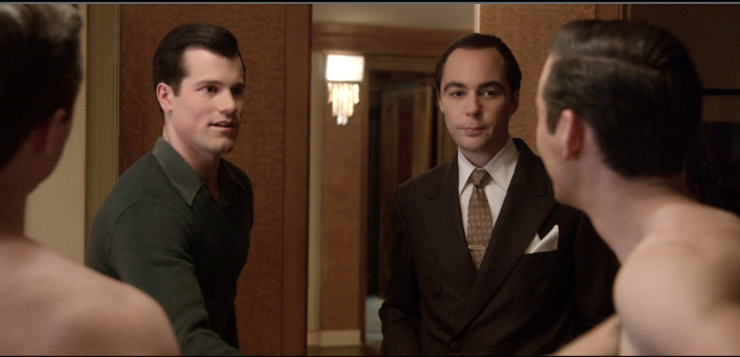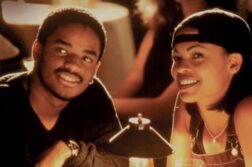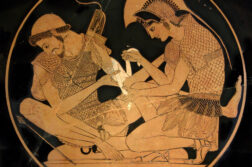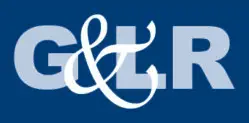“EVERYBODY comes to Hollywood [and]wants to make it in the neighborhood,” Madonna mused nearly two decades ago on “Hollywood,” asking “How can it hurt you when it looks so good?” That paradox—all the glamour and grime of show business—is well depicted in Circus of Books and Hollywood, a documentary and miniseries, respectively. The two share an interest in the margins around Tinseltown, especially its LGBT subculture and what “hustling” means in various forms. They are also the first fruits of that jaw-dropping $300 million contract that writer-director Ryan Murphy scored last year. Having given audiences Glee, The Assassination of Gianni Versace: American Crime Story, and the film adaptation of the late Larry Kramer’s The Normal Heart, the 54-year-old director and renowned workaholic continues to cultivate some of the queerest content on TV.
Circus of Books is a labor of love directed by Rachel Mason, the only daughter of Karen and Barry Mason, who until last year owned and operated the eponymous bookstore in West Hollywood. Starting in 1982, the Masons sold a range of adult goods and gay reading material (including magazines such as this one) and stumbled into being gay allies and activists. During the Reagan era, they survived not one but two traumas: the first being the AIDS crisis, which turned gay town into a ghost town, the other, an FBI crackdown that led to charges (later dropped) of distributing obscene materials across state lines.
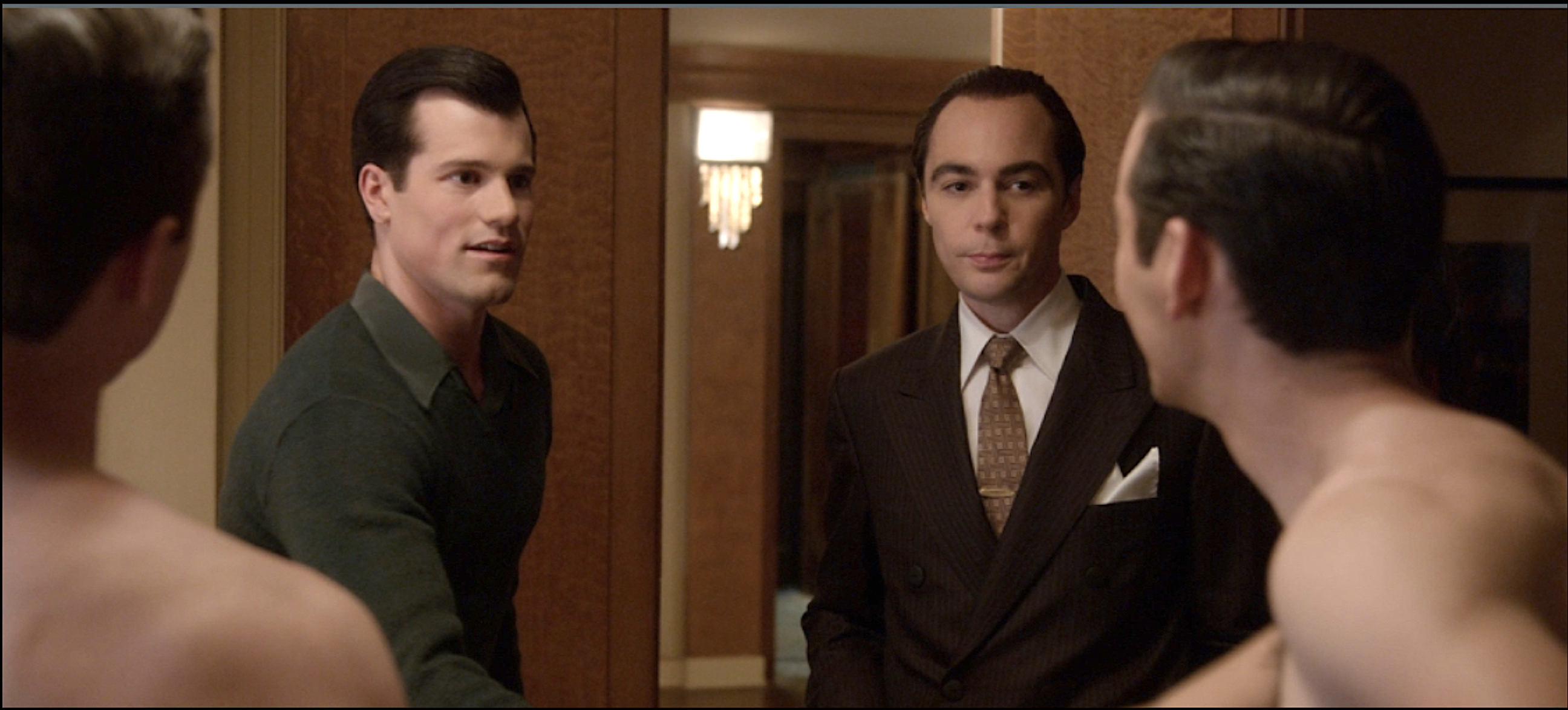
Although Karen had cut her teeth as a distributor for Larry Flynt, the Masons are the mirror opposites of Flynt or Hugh Hefner, porn’s defiant founding fathers. Karen is devoutly Jewish and cares only about the profits, not the porn. Forced to explain the family business, she glances at Barry before blurting it out: “Circus of Books is a bookstore and a hardcore gay adult business.” There’s a fascinating faux naiveté at work, especially when it comes to Karen, who rushes through an adult novelties expo like she’s doing last-minute Christmas shopping. “I don’t particularly enjoy looking at it,” she tells a dildo salesman, “I can notice it without looking at it.”
Titles such as Meat Me at the Fair and Hard Ball elicit guffaws from the film’s commentators, including none other than Jeff Stryker. When the star isn’t marveling at the action figure made in his image—“anatomically correct, so this is where I have an edge on Ken,” he boasts—he describes the Masons’ mind for business, saying: “You’d never expect these people to be distributing adult movies worldwide but they looked at it the same way I looked at it … supply and demand.” But the Mason family’s kinship with gay culture was not solely based on serving its own self-interest. Pornography, love it or hate it, played a vital role in the gay rights movement by granting visibility to people and pleasures otherwise suppressed. As one loyal customer puts it: “To see men naked … that gave us a lot of pride.”
Given her emotional connection to the material, Rachel Mason’s one-of-a-kind home video is a moving portrait of her parents’ work ethic and empathy. Visiting several of their employees as they lay dying of AIDS, they acted as the surrogate parents to men whose actual parents had shunned them. Behind the shop was a vibrant spot known by locals as Vaseline Alley, where one customer claims to have lost his virginity to a cop in training. It was, he tells the camera excitedly, “every queer boy’s wet dream!” Circus of Books is also the story about a gay neighborhood. Running parallel with the Mason family circus is the coming-out story of their son Josh, a process that his gay-porn-dealing mother has a surprisingly hard time accepting.
Naked men inspire more than just pride in the splashy, seven-part series Hollywood, which imagines an alternative reality where a big movie studio in postwar America not only casts but champions actors of every race and sexual identity. “Could one movie change the way a nation sees itself?” asks one announcer in a movie-trailer. Hollywood thinks it can. Jack Picking plays the real-life legend Rock Hudson who, in the 1940s, was a Navy veteran named Roy Scherer and just off a Greyhound bus from Illinois. He falls head-over-heels for Archie (Jeremy Pope), an African-American screenwriter who has written a script titled Peg (renamed Meg) that will eventually feature a black actress in the starring role. A cadre of forward-thinking directors and editors put their careers on the line to see that Laura Harrier (as Camille) be cast in that role. Behind the scenes as well is Ernie, a has-been actor who runs a gas station that hires the best-looking attendants in town. When not pumping gas their servicing Ernie’s customers—many famous actors and actresses—in a trailer parked behind the gas station. Ernie, who’s based on the real-life figure Scotty Bowers, knows a pretty face when he sees one, so he scoops Archie, Rock, and Jack as escorts and teaches them how to hustle.
For Ryan Murphy, the show cannot go on without the grande dames of film and stage. Never mind his soft spot for actors whose seductive good looks border on the supernatural. Without his usual muse, Jessica Lange, he turns to Holland Taylor and Patti Lupone, the latter in the role of Avis Amberg, the wife of a Selznick-like studio head, who channels her inner Mae West, mink stole and all. Another Murphy regular is Jim Parsons, who recently led the ensemble cast in the Broadway revival of The Boys in the Band. As Henry Wilson, he reprises the “bitter old queen” type. Wilson is a closeted talent manager who sexually harasses the wide-eyed Hudson in ways that prefigure the casting couch of Harvey Weinstein. Queen Latifah makes a cameo as Hattie McDaniel, the first African-American Oscar winner (for Gone with the Wind), who urges Camille not to accept segregated seating, as she had, at the awards ceremony.
Hollywood takes the happily-ever-after ending to the extreme—spoiler alert!—by sending Rock and Archie, as an interracial same-sex couple, down the red carpet on Oscar night. Critics of Hollywood claim that such distortions are dangerous and that 2020 is simply not the year to wave away racial strife with a magic wand. It’s one thing to imagine the future, they argue, but another to re-imagine a nation’s painful past. But Hollywood doesn’t aspire to be anything more than counterfactual froth and fantasy, perfectly timed for life in isolation when dreamland is what many of us need. Sure, Arnie’s speech in the final episode (titled “Hollywood Ending”), in which he announces that “I’m showing up at the Oscars with [Rock Hudson] on my arm … telling the world that we refuse to hide,” is a little hokey. But there’s another word for it, and that’s “entertainment.”
Colin Carman is an assistant professor of English at Colorado Mesa University. He is currently writing his second book with a focus on happiness in the novels of Jane Austen.

